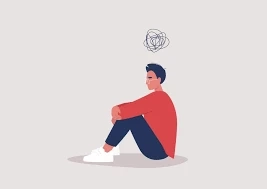First of all,
The neurodevelopmental disorder known as Attention Deficit Hyperactivity Disorder (ADHD) is typified by impulsivity, hyperactivity, and inattention. Mind-body techniques like yoga and meditation have gained popularity as supplementary methods to behavioral interventions and medication-assisted management of ADHD symptoms. This article examines the possible advantages of yoga and meditation for people with ADHD, as well as the underlying mechanisms of action and methods for implementing these practices into treatment regimens. Through gaining knowledge about the function of mind-body techniques in managing ADHD, people can investigate all-encompassing methods to enhance their overall health and life satisfaction.
Comprehending Symptoms of ADHD
ADHD symptoms can take many different forms, such as trouble focusing, impulsivity, hyperactivity, and trouble managing time and organizing oneself. These symptoms may affect one's ability to learn, work efficiently, and maintain healthy relationships with others, which may make day-to-day tasks more difficult and lower one's quality of life overall. While behavioral therapies and medication are frequently used to treat ADHD symptoms, many people look for complementary therapies to improve symptom management and overall wellbeing.
Yoga's Possible Benefits for ADHD
Yoga is a mind-body activity that enhances relaxation, reduces stress, and improves general wellbeing by combining physical postures, breathing exercises, and meditation. According to research, yoga may help people with ADHD in a number of ways, including better focus, impulse control, and emotional stability. Furthermore, yoga's mindfulness and physical components may help people with ADHD become more self-aware and less hyperactive. People with ADHD who practice yoga on a regular basis can improve their resilience and self-regulation in handling their symptoms.
Meditation's Possible Advantages for ADHD
A mind-body technique called meditation trains the mind to focus on a single thing, idea, or action in order to develop awareness and inner calm. According to research, people with ADHD may benefit from meditation in a number of ways, including enhanced focus, impulse control, and emotional stability. Regular meditation practice helps people with ADHD become more self-aware and mindful, which helps them better control their symptoms and enhances their general wellbeing.
The Action Mechanisms:
Although the exact mechanisms behind the benefits of yoga and meditation for ADHD are unknown, a number of factors may be involved. The relaxation and stress-reduction techniques of yoga and meditation can help lessen anxiety symptoms and enhance general wellbeing. Furthermore, mindfulness and self-awareness are developed by yoga and meditation, which helps people better understand and control their thoughts, feelings, and behaviors. Yoga's physical component may also assist people with ADHD become more focused and attentive while reducing hyperactivity. Yoga and meditation can improve symptom management and serve as a supplement to conventional ADHD treatments by targeting these underlying causes.
Ways to Include Yoga and Meditation in Programs for Treating ADHD:
Careful thought and a customized strategy are needed when including yoga and meditation into treatment strategies for ADHD. Before beginning any new practices, people with ADHD should speak with their healthcare professional, especially if they have any underlying medical issues or concerns. After clearing, people can experiment with different yoga and meditation styles, like vinyasa flow, hatha yoga, mindfulness meditation, and loving-kindness meditation, to see which ones work best for them. To prevent overwhelm and frustration, it is imperative to begin cautiously and increase practice time and intensity gradually. People could also gain from going to seminars or classes taught by knowledgeable teachers who can offer direction and encouragement.
Extra Thoughts and Safety Measures:
Although yoga and meditation can be very beneficial for those with ADHD, there are some other things to think about and safety measures to take. It can be difficult for people with ADHD to stay focused and pay attention during yoga and meditation sessions, especially in the beginning. It is crucial to approach these activities with tolerance, kindness, and an open mind, enabling oneself to be in the moment with whatever thoughts or feelings that surface. In order to prevent pain and injury, people should also pay attention to their bodies and adjust poses or techniques as necessary. Lastly, people need to understand that yoga and meditation should be incorporated into a thorough ADHD management strategy; they should not be utilized in place of medical care.
Conclusion:
As complementary therapies, yoga and meditation show promise in reducing symptoms of ADHD and enhancing general wellbeing. Through the integration of mind-body activities into their daily routine, individuals diagnosed with ADHD can enhance their self-regulation, resilience, and self-awareness, ultimately leading to improved symptom management and quality of life. The increasing amount of data indicates that including yoga and meditation into ADHD treatment regimens is beneficial, even if more study is required to completely comprehend the mechanisms of action and best practices for managing ADHD. People with ADHD can explore holistic techniques to improve their well-being and thrive despite the problems of ADHD with the help of healthcare practitioners and regular practice.


